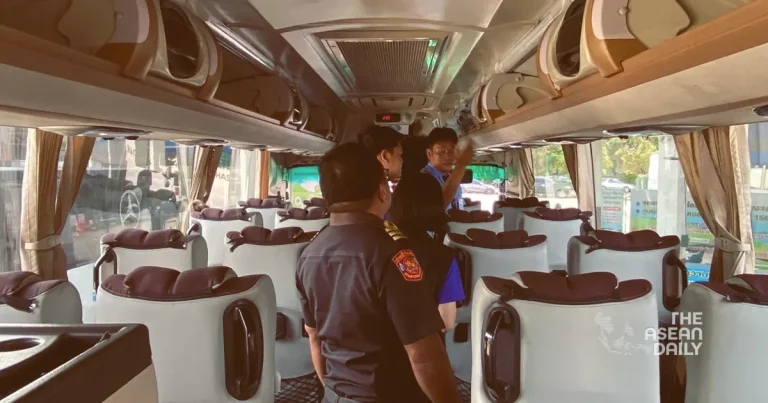3-10-2024 (BANGKOK) In the wake of a devastating fire that claimed the lives of 20 students and 3 teachers, Thailand’s Transport Ministry has initiated an urgent and comprehensive safety review of all compressed natural gas (CNG) powered buses across the nation. The tragic incident, which occurred during a school trip in Pathum Thani province, has prompted swift action from authorities to prevent future catastrophes.
Deputy Transport Minister Surapong Piyachote announced on Wednesday that the Department of Land Transport (DLT) has been given a two-month deadline to inspect all 13,426 CNG-powered passenger buses currently registered in Thailand. This mammoth task encompasses 10,491 buses serving regular routes and 2,935 chartered vehicles.
The ill-fated bus was one of three chartered by Wat Khao Phaya Sangkharam School in Uthai Thani for a primary school excursion to Ayutthaya. Out of 45 passengers, including 39 students and six teachers, 23 perished in the inferno.
In addition to the rigorous inspections, Mr Piyachote outlined several other safety measures being implemented:
- A new regulation mandating safety and crisis management training for all bus drivers and staff.
- Coordination between the DLT and schools nationwide to ensure proper inspection and safety checks of all buses used for school trips.
- A review of the maximum allowed service years for passenger buses, prompted by the revelation that the bus involved in the accident was first registered 54 years ago.
- Consideration of mandatory safety demonstrations for passengers on chartered buses, similar to those given on flights.
DLT Director-General Jirut Wisaljit provided further details, revealing that the bus involved in the accident was registered to an individual named Panisara Shinbutr, whose public transport operator licence has been suspended. Mr Wisaljit also highlighted existing regulations requiring bi-annual inspections of CNG-fuelled vehicles due to the susceptibility of gas canisters to leakage and damage from vibration and friction.
Current regulations stipulate maximum service periods for buses based on trip distances: 40 years for journeys under 300 km, 35 years for 300-500 km trips, and 30 years for journeys exceeding 500 km.
Chayatan Phromsorn, Permanent Secretary of the Transport Ministry, announced the formation of a special panel to revise all regulations related to passenger buses. This committee, which will include representatives from the Council of Engineers and various traffic and safety standard agencies, is expected to conclude its discussions within 15 days.




